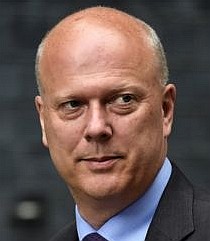
CHRIS
GRAYLING MP
Epsom & Ewell
As the Transport
Secretary for the Conservative Party in 2018, Chris Grayling will be
looking for climate change friendly ways of improving
road stocks from
existing assets such that air quality is improved and vehicles of the
future may be serviced, given that these are likely to be electric
vehicles and that there is as yet no infrastructure for such fleets
of low carbon: cars, vans and trucks.
If
only our own MP, Nus Ghani, was doing the
same, perhaps with the backing of Ann
Newton, Johanna
Howell and Susan
Stedman. Wealden seems to have forgotten that car ownership per
household in the South-East is higher than other areas of the country.
The
former Leader of the House has been dealing with Southern Rail's disrupted services, the question of Heathrow's third runway and the high speed rail link, HS2.
He also served as shadow transport secretary from December 2005 to 2007,
meaning that he is aware of the issues that he is facing, in accepting
the position, especially with the likes of Greta
Thunberg breathing down his neck, while chasing climate
criminals. What then of the pothole situation that is getting worse?
Pothole politics is becoming the hallmark of British life, where the
taxpayer is paying for services and not getting them.
It's
the same with the NHS, pensions and housing. And, the UK is deeply in
debt because the electorate have trusted a bevy of Governments to spend
to gain their votes, without telling them that was how they intended to
carry out their election promises. All of this is contrary to United
Nations sustainability
development goals.
MARITIME
2050 SPEECH - JANUARY
28 2015
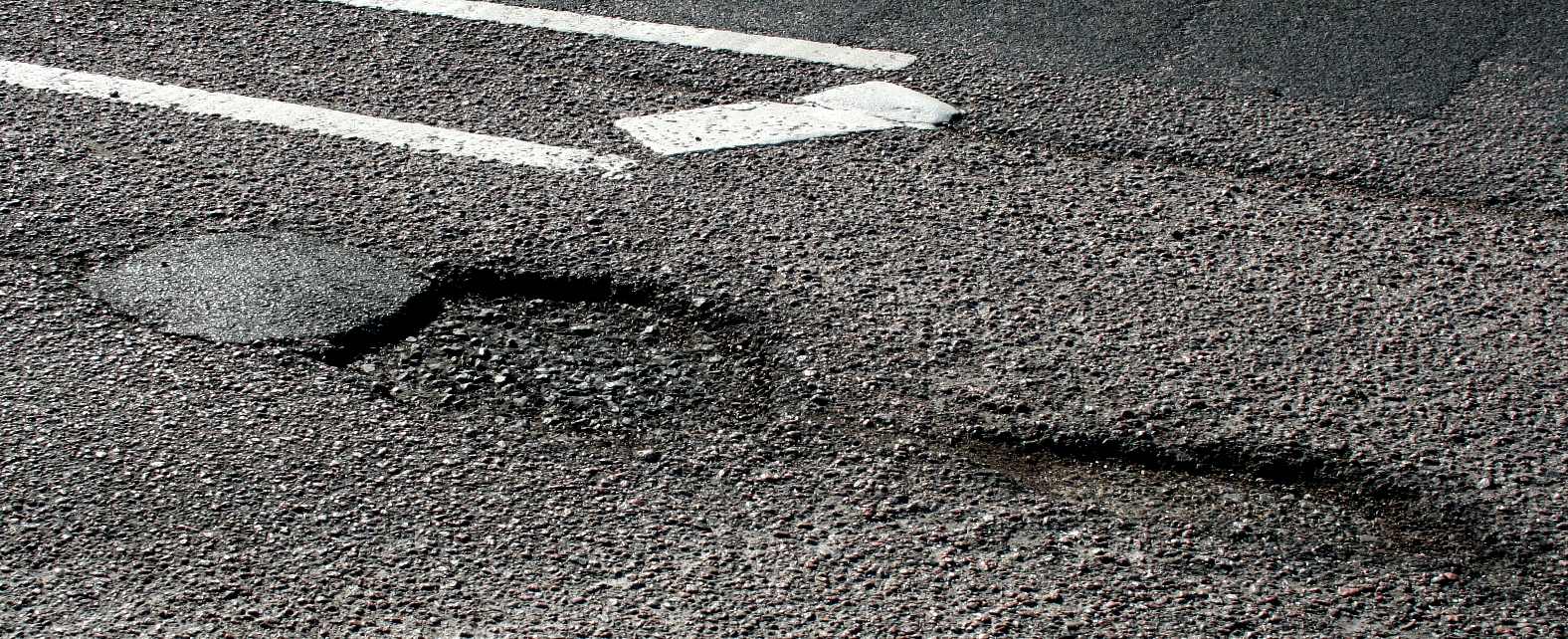
REPAIRED
ONCE ALREADY - Not a bad blend
in that one, pity it didn't last. The wear and tear of repairs to
potholes may do better with
a stronger repair compound. Who monitors the quality of the tarmac we
use on our roads. Should not high traffic areas have a different mix to
cope without constant repair after repair. Is there not a high speed
repair machine? We certainly need one. Any fool can fill a hole with hot
tarmac, some chimpanzees
could master that. It does not say a lot for British politicians.

GUARDIAN
EXTINCTION CRISIS NOV
2018 -
How to push green issues up the political agenda is a question that has exercised environmentalists for decades. Do dark warnings about the world that awaits us if we do not curtail carbon emissions and protect forests and oceans motivate people to act, or scare them off? Are apocalyptic visions such as that in Cormac McCarthy’s novel The Road what we need to open our minds, or an inducement to give up trying?
Opinion is divided, as events of the past week have illustrated. In advance of his latest wildlife television series, Dynasties,
David Attenborough said at the weekend that too many warnings about endangered species are a “real turn-off”. A few days earlier, the activist group Extinction Rebellion launched a campaign of civil disobedience by demanding a zero-carbon economy by 2025. Writing in advance of a protest in London that saw 15 people arrested, Green MEP Molly Scott Cato said she and others have been driven to break the law after spending years ringing alarm bells and being ignored.
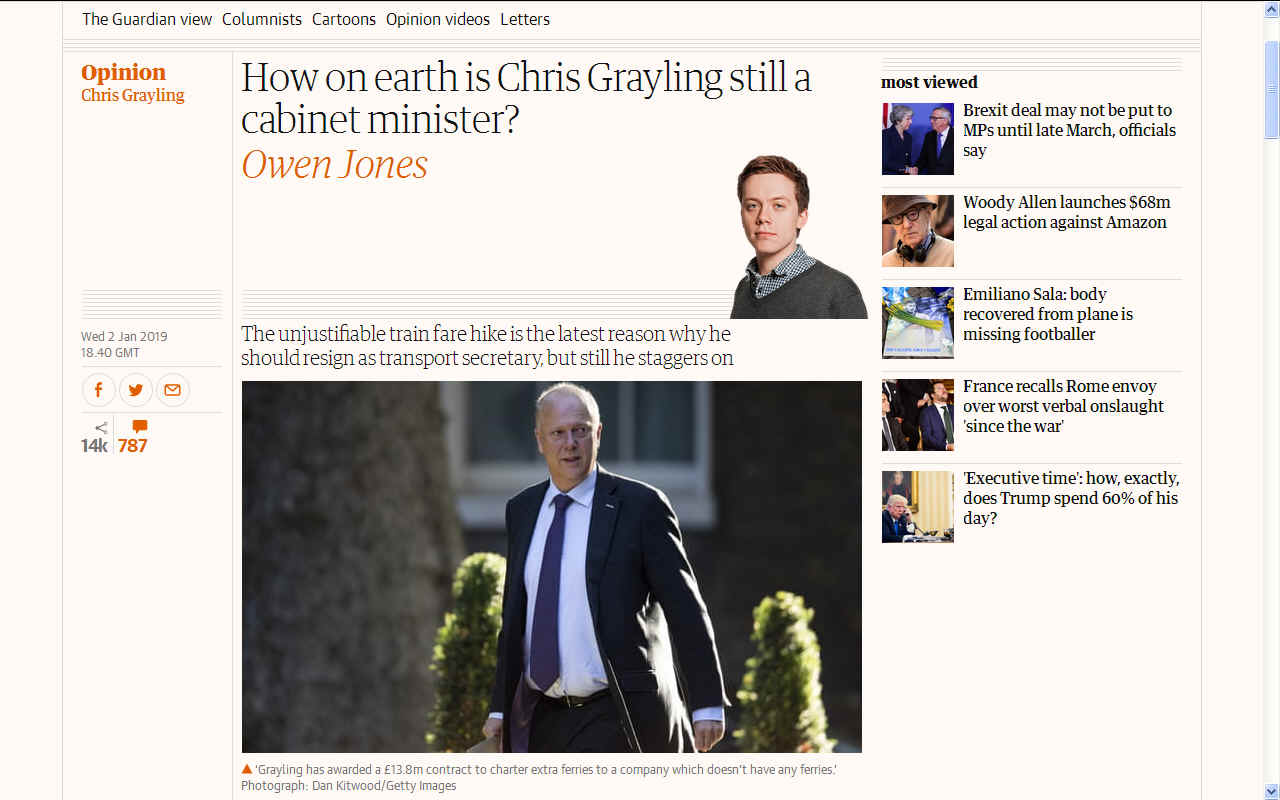
THE GUARDIAN 2 JANUARY 2019 - How on earth is Chris Grayling still a cabinet minister?
The unjustifiable train fare hike is the latest reason why he should resign as transport secretary, but still he staggers on.
Whenever I see that Chris Grayling – officially secretary of state for transport, unofficially minister for blunders, incompetence and general disaster – still has a job, I wonder what Hugh Dalton would think. Dalton served as chancellor of the exchequer in Clement Attlee’s post-war
Labour government for its first two years, and was the initial architect of its progressive economic measures. But then, in the late autumn of 1947, Dalton inadvertently leaked some minor details of his impending budget to a lobby journalist. By today’s standards, we’d struggle to call it much of a leak: the papers hit the stands very shortly before Dalton stood at the dispatch box. Yet this was such a scandal at the time that he felt obliged to resign from the cabinet.
Seventy years on, it turns out that Chris Grayling does actually serve a useful purpose, as a measure of the extent to which the resignation threshold has been raised. Maybe the transport secretary should lend his name to this political trend: the Grayling principle, perhaps. Come now, you protest, which government has offered the British public such a varied smörgåsbord of ministerial resignations? Yet many of those are Tory Brexiteers fleeing a crime scene, not honourably resigning office due to their own failures; or ministers resigning over allegations of sexual harassment and misconduct; or, in the case of Priti Patel, stepping down because of secretive meetings with a foreign government.
Even former home secretary Amber Rudd – who was swiftly reinstated to the cabinet – was forced to resign over misleading MPs, rather than the substance of the Windrush scandal, which deprived British citizens of healthcare, left them homeless, or even deported them. In this context, that Grayling continues to be paid £141,000 a year is a sign not only of shambolic government, but of national and political decline too.
Given the chaos we have become used to, when you hear that Grayling has awarded a £13.8m contract to charter extra ferries in a no-deal
Brexit scenario to a company that doesn’t actually have any ferries, you simply exclaim: “But of course!” He isn’t entirely to blame. The government as a whole is spending vast sums of public money on a no-deal outcome, principally as an act of psychological warfare aimed at coercing MPs into voting for
Theresa May’s deal. Yet committing taxpayers’ money to a no-ships company to help save Britain from a hypothetical self-inflicted meltdown would surely be a scandal in normal times.
Consider Grayling’s wider record. Train punctuality has sunk to a 13-year low, while rail fares have again been raised in an era in which British workers have suffered the worst stagnation in wages since the Napoleonic wars. During the disruption last year, in which up to 200 Govia Thameslink services a day were being cancelled, Grayling defended himself as not a “specialist in rail matters”. According to an interim report from the Office of Road and Rail, “nobody took charge”. As a bare minimum, he should have stripped Govia Thameslink of its franchise, but instead the company was merely required to spend more on passenger improvements.
In 2016, a leaked letter found that Grayling opposed devolving control of suburban rail to London’s elected authorities for partisan reasons: he wanted to keep it “out of the clutches” of a Labour mayor. Even a former
Conservative vice-chair declared no confidence in him after that. Both Crossrail and HS2 have been beset by disastrous delays and budget overruns, but while chairman Terry Morgan bit the bullet, Grayling remains in place.
Whatever the truth behind the Gatwick drone which wrecked so many people’s Christmases, we know that Grayling stopped plans to regulate the use of drones and failed to heed warnings of the disruption they might cause at airports. And while he absurdly suggested that buses could soon be replaced by Uber-style services, cuts of 45% have been made to supported bus routes since 2010 and fares raised at rates beyond inflation. To have such a dismal record and still manage to spend £300m more than his department’s annual budget is almost impressive.
Grayling is therefore a source of inspiration to mediocre white men everywhere who, however much they lack ability, can still look forward to wielding power. We live in a country, after all, in which the first black female MP is pilloried for getting some figures wrong in an interview, while Grayling can preside over abject chaos in Britain’s essential national infrastructure and still remain in post. In that sense, he sums up a twofold national decline: in the standards of a morally decrepit political elite, and in the provision of essential services in a supposedly advanced economy.
Of course, it’s not just about Grayling. The privatisation of the railway system is one of the most vivid examples of how market ideology has set itself on a collision course with reality. Even a thoroughly competent politician would struggle to run such a fragmented mess. That Grayling is no such thing merely compounds a terrible national error. And so, along with rain on a bank holiday, it seems there are some new certainties in decaying Tory Britain: that trains are delayed and overcrowded, that fares are unaffordable, and that Chris Grayling keeps his job.
By Owen Jones
CONSERVATIVE
MPS 2017-2018
|
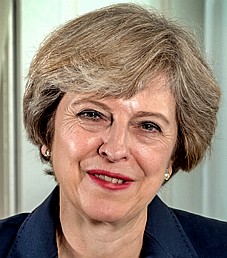
Theresa
May - Prime Mnister
MP
for Maindenhead
|
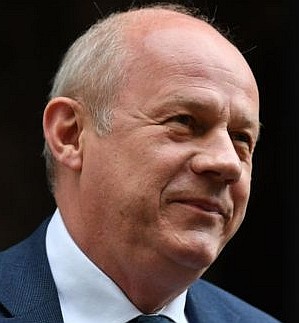
Damian
Green
MP
for Ashford
|

Philip
Hammond
MP
Runnymede & Weybridge
|

Boris
Johnson
MP
Uxbridge & South Ruislip
|
|
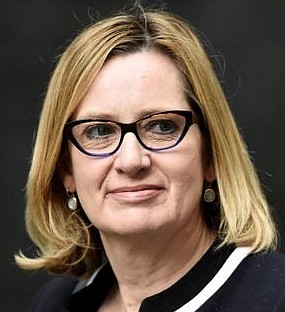
Amber
Rudd
MP
Hastings & Rye
|
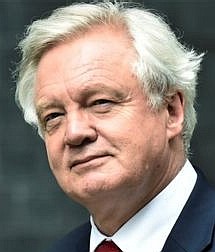
David
Davis
MP
Haltemprice & Howden
|
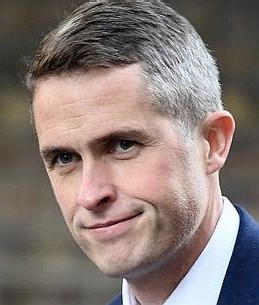
Gavin
Williamson
MP
South Staffordshire
|
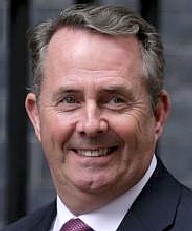
Liam
Fox
MP
North Somerset
|
|
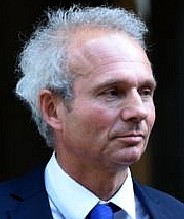
David
Lidlington
MP
for Aylesbury
|
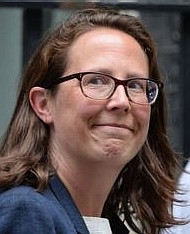
Baroness
Evans
MP
Bowes Park Haringey
|
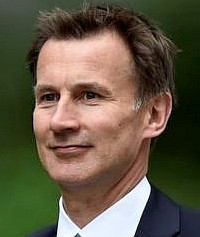
Jeremy
Hunt
MP
South West Surrey
|

Justine
Greening
MP
for Putney
|
|

Chris
Grayling
MP
Epsom & Ewell
|
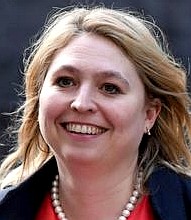
Karen
Bradley
MP
Staffordshire Moorlands
|

Michael
Gove
MP
Surrey Heath
|
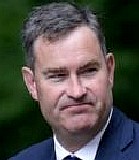
David
Gauke
MP
South West Hertfordshire
|
|
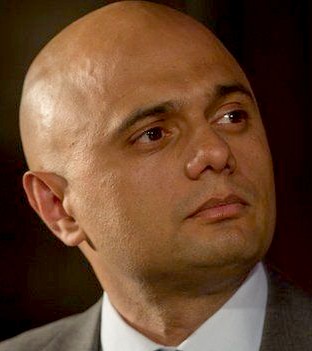
Sajid
Javid
MP
for Bromsgrove
|

James
Brokenshire
MP
Old Bexley & Sidcup
|
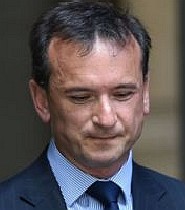
Alun
Cairns
MP
Vale of Glamorgan
|
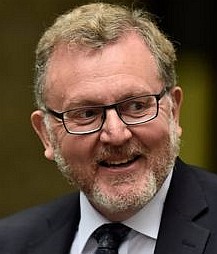
David
Mundell MP
Dumfriesshire
Clydes & Tweeddale
|
|
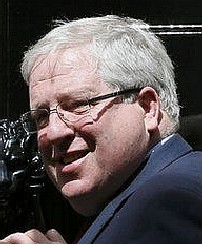
Patrick
McLoughlin
MP Derbyshire
Dales
|
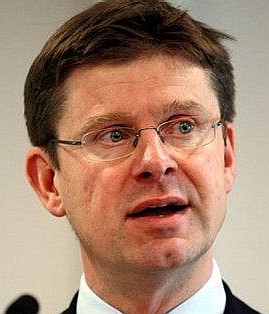
Greg
Clark
MP
Tunbridge Wells
|
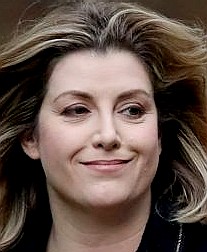
Penny
Mordaunt
MP Portsmouth
North
|

Andrea
Leadsom
MP South Northamptonshire
|
|

Jeremy
Wright
MP
Kenilworth & Southam
|

Liz
Truss
MP
South West Norfolk
|
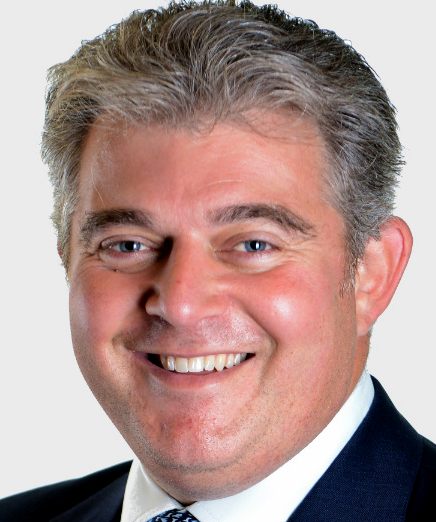
Brandon
Lewis
MP
Great Yarmouth
|

MP
Nus
Ghani
MP
Wealden
|
|
|
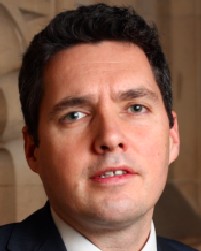
Huw
Merriman
MP
Battle
|
|
MP
|
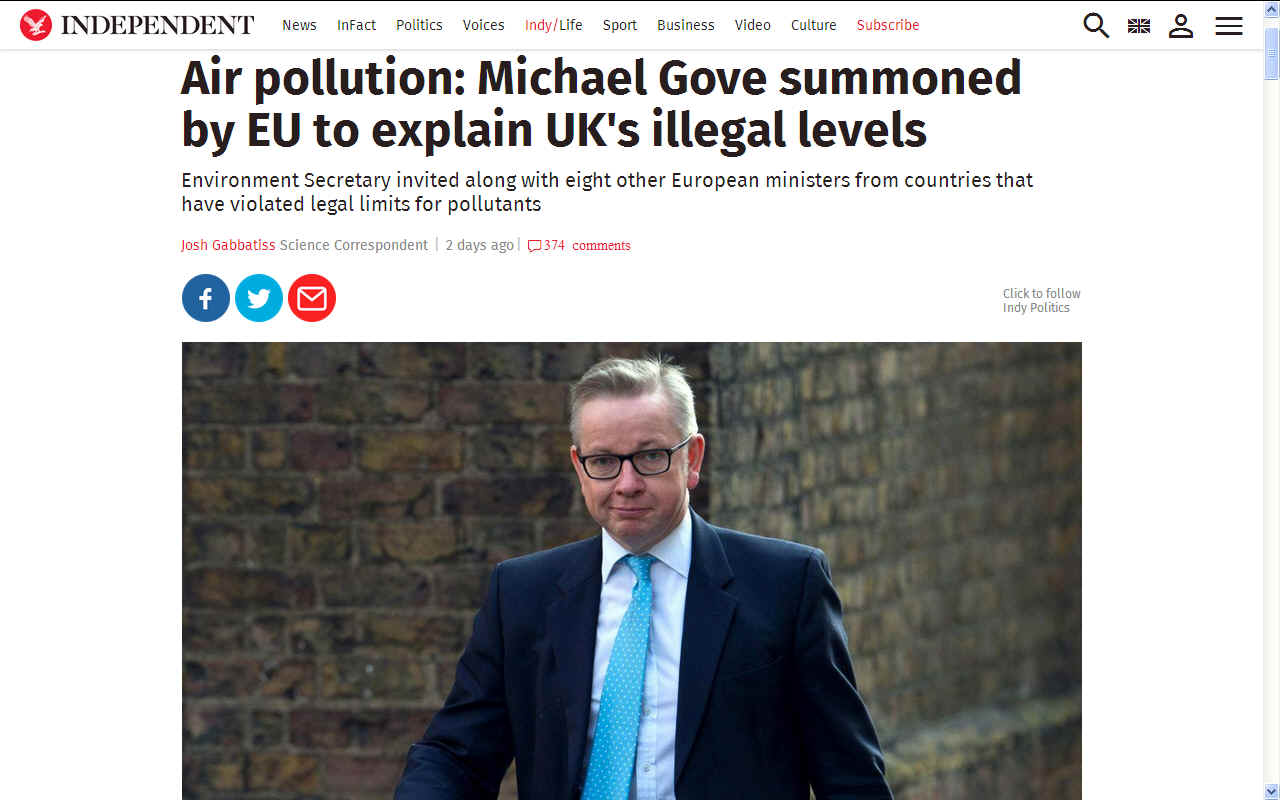
CONSERVATIVE
CLIMATE - Michael Gove has been summoned to Brussels because of his
party's failure to meet air
pollution targets despite warnings about
which the Prime
Minister was aware of. British politicians at local and national
level are not taking climate
change seriously, despite the Climate
Change Act 2008.
The
real problem is political musical chairs. The Conservative party do not
appear to have sufficient suitably qualified politicians to be able to
run the country effectively. They bounce from one post to another, not
knowing enough about the subject. The rate of bounce is an indicator of
the level of incompetence of any member of parliament. Their secret to
staying in trusted positions for so long is the lack of transparency in
local and national Government. We heard one story that a Magistrate in
Hastings refused to give her name, presumably for fear of being called
to account. So, now we have Courts that are shying away from
transparency, suggestive of secret society involvement. Not proven just
yet, but why would any court official refuse to give their name. That is
a guilty mind for sure and proof of Article
6 violation, in that a fair hearing demands that the court
determining any matter must be accountable in name and for their
decisions.
UK
POLITICS
The
United Kingdom has many political parties, some of which are
represented in the House of Commons and the House of Lords.
Below are links to the websites of the political parties that were
represented in the House of Commons after the 2015 General Election:
CONSERVATIVE
PARTY
CO-OPERATIVE
PARTY
DEMOCRAT
UNIONIST PARTY
GREEN
PARTY
LABOUR
PARTY
LIBERAL
DEMOCRATS
PLAID
CYMRU
SCOTTISH
NATIONAL PARTY
SINN
FEIN
SOCIAL
DEMOCRATIC AND LABOUR PARTY
UK
INDEPENDENCE PARTY
ULSTER
UNIONIST PARTY
Conservative
Party
Co-operative
Party
Democratic
Unionist Party
Green
Party
Labour
Party
Liberal
Democrats
Plaid
Cymru
Scottish
National Party
Sinn
Féin
Social
Democratic and Labour Party
UK
Independence Party
Ulster
Unionist Party
We
are concerned with how the make up of the above parties and (reasonably)
popular policies may affect the Wealden district, because we are all
brothers on two islands in the Atlantic
Ocean and what we do or fail to do is likely to rebound on ourselves
and our fellow man in other nations around the world. How we act today
influences policies in other countries in our global community. It is
not just about us and our patch.
DISTRICT
& BOROUGH COUNCILS
East
Sussex has five District and Borough Councils, each with a border on
the coast. From west to east they are:
Eastbourne
Borough Council
Hastings
Borough Council
Lewes
District Council
Rother
District Council
Wealden
District Council
There
is also East
Sussex County Council as the provider of services to the 5 East
Sussex districts.
As
near neighbours and with councils now sharing facilities and working
together, these area of Sussex are included in our remit and an area
where climate
change and affordable
housing are issues that need urgent attention. Where the coastline
is a feature in every Council, Blue
Growth is a food
security issue, especially where this side of of our local economy
is under-exploited.
































